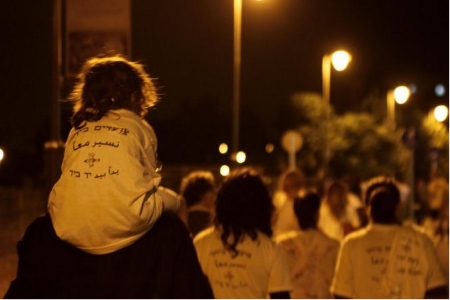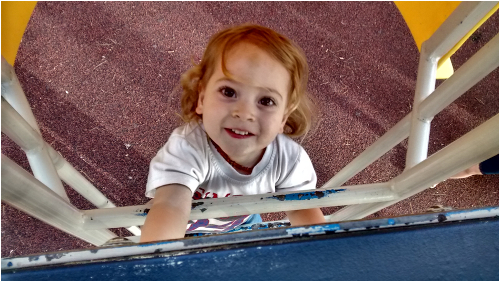In a conversation with the PIJ, Lotahn Raz exposed the contradictions inherent in his Israeli identity and resistance to militarism. Since the age of 18 the young father has been committed to fighting the militaristic principles on which Israeli society is based.
It started with the call-up to the army when he was 18. Raz saw his human rights violated by the compulsory conscription. He was imprisoned as “I was refusing because I did not want to take part in the policies of occupation and oppression that the military takes part in, which I considered racist, and counter to our own humanity and against our best interests“. Young people today face the same situation. During the past year, Tair Kaminer made headlines by talking very openly about conscientiously objecting to conscription. For men, the situation is even more loaded says Raz: “In this society, men are expected and educated to be soldiers”. According to Raz this leads to a loss of feelings and empathy that are urgently needed on part of the Israelis. Without empathy Israelis will never understand that the foundation of the State of Israel marks the Nakba (catastrophe) for the Palestinians. And acknowledging the Nakba as a central element of Palestinian identity and history is an essential step towards co-existence.

Lotahn Raz: Since the age of 18 fighting against militarism in Israeli society
Enable them to own their thoughts
Lotahn Raz’s aim working with several NGOs, among them the PIJ for two years, has been to enable young people to reflect their actions and the impact their life has on others. He noticed that “there is no understanding of the role they play when serving in the army”. That military service in itself is a highly political issue which is ignored by many. In Raz´s opinion, the government fears objectors precisely because they “diminish the integrity of the political system”. That’s why they are feared by the government which is interested in the unchallenged continuity of its rule.
A key to breaking the vicious cycle of fear is humanity. As soon as people recognize that “we are all one”, the narrative of separation promoted by the Israeli government is challenged. This is not an easy thing as “all of us [Israelis] live under the constant fear the [Israeli] government imposes on everybody”. Raz’s mission is to change the basis of decisions from fear, separation and so called security to pro human decisions.
Activism towards humanity takes different forms for him: “Sometimes you have to take a stand, sometimes you want to reach out”. Demonstrations are designed to take an antagonistic stance, to upset people. But in daily conversations, Lotahn Raz does not chose confrontation. He argues that average people need room to “slowly consider things without being criticized”. When somebody talks about his or her fears and disagreement, he tries to listen, “although their decisions were bad for them and others”.
The solution? Humanism!
“Many good and real political solutions are possible once there is a decision to move towards a political solution based on the human respect dignity of all people, and on meeting everyone's needs.” But the forces on the ground seem to push in the other direction, towards fright and confrontation. Most people think that the fighting is necessary. But he insists: “It is significant to understand the lie of separation”. The root of the Israeli culture of fear can according to Raz be partly attributed to the Jewish history of persecution. Or rather the artificially upheld version of history the Israeli government promotes in which the only way to survive is constant fight. “Not our safety but their profit underline every policy,” he says, exposing the hollowness of the state-sanctioned narrative of security.
It is a weak point that can be used to start a counter argumentation based on humanistic ideas. “Everybody longs for identity and a homeland” – according to Raz, “Once that point of view becomes strong enough to determine policy, the discussion of the nature of the solution becomes more relevant”.
So what are the practical implications of Lotahn Raz’s principles? “Change the way we raise children”, he demands. This is something Raz has been practicing with his son for three years now. Children are, in the very beginning, not interested in fighting but in dealing with people, he says. The challenge is, to preserve those first moments before society leaves its marks, and to encourage them to develop their own vision of the world they want to live in. In Israel’s deeply militaristic society, “boys are raised to be soldiers. I stand up against that. I raise him to cry when he is sad and to show his feelings”.

“Boys are raised to be soldiers. I stand up against that. I raise my son Agam to cry when he is sad and to show his feelings” says Lotahn.
Read more on Lotahn Raz’s blog Crossing the Lines.
